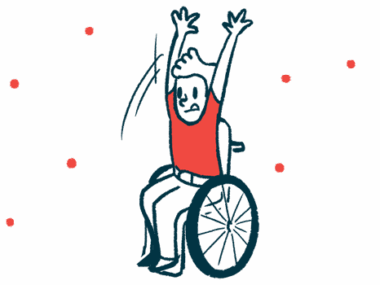FDA Issues No Fines for Data Problems in Zolgensma’s Application
Written by |

The U.S. Food and Drug Administration has decided not to fine or otherwise sanction Novartis for manipulated data included in the application that led to Zolgensma‘s approval to treat spinal muscular atrophy (SMA) in children up to age 2.
The FDA was not informed until roughly a month after it announced its favorable decision on May 24, 2019, making Zolgensma, with a U.S. list price of $2.1 million, the first gene therapy to treat any neuromuscular disease.
Its inquiry into the manipulation and the delayed reporting, which opened in August, is now closed.
Novartis had responded to the formal inquiry by putting in place procedures to quickly disclose issues affecting data integrity and quality control, and to improve training of its employees on these issues.
AveXis, the company that first developed the therapy, then known as AVXS-101, informed the FDA of “data manipulation issues” involving early animal studies on June 28, 2019. It was reported to have learned of the problematic data in March.
The “FDA completed review … and classified the inspection as Voluntary Action Indicated with no further enforcement action necessary,” Novartis, which now owns AveXis, reported in an investor update this week. Voluntary Action Indicated is U.S. government parlance for violations found not to cross the threshold for regulatory action.
At no time during the inquiry was the effectiveness or safety of Zolgensma, which is approved as an intravenous (IV) infusion for all SMA types in newborns and toddlers, in question.
The FDA reported, in announcing the inquiry’s start, that the problematic animal data was contained in only a “small portion” of animal studies among the “large amount of submitted information” taken under review.
At that time, the agency warned of possible fines or other penalties against AveXis, and by extension Novartis, citing the importance of “complete and accurate data in product applications.” Its inquiry, which stretched seven months, may have been meant as a warning to the companies directly involved, and to others in the pharmaceutical industry.
Novartis also dismissed, citing cause, two AveXis executives who were instrumental in AVXS-101’s testing: Brian Kaspar, the company’s chief scientific officer, and his brother Allan Kaspar, vice president for research and development. Brian Kaspar, through his lawyer, is reported to deny any wrongdoing. The two were fired on Aug. 13.
The FDA, in a separate action, also placed a partial hold on a Phase 1/2 clinical trial, called STRONG (NCT03381729), aiming to extend the treatment’s approval to older patients. STRONG is testing the gene therapy in type 2 children up to age 5 using intrathecal (IT) injections directly into the spinal canal, a more targeted route of administration than its approved form, that of systemic infusion into a vein.
The partial hold, blocking further enrollment in the trial, was put in place in October after AveXis reported troubling findings of “dorsal root ganglia (DRG) mononuclear cell inflammation, sometimes accompanied by neuronal cell body degeneration or loss,” in primate Zolgensma studies using IT injection.
This means that primates in this SMA model showed inflammation — a sign of immune system reaction against something viewed as a threat — in a cluster (a ganglia) of sensory nerve cell bodies at the dorsal (posterior) root of spinal nerves. These cells bodies help to transmit sensory messages of pain and touch.
None of the 32 SMA patients treated in STRONG prior to the October hold, or any of the more than 300 children treated by IV injection in Zolgensma trials or hospital use through December 2019, show similar dorsal root inflammation, Novartis announced in a press release.
The companies submitted data supporting the safety of Zolgensma given by IT injection to the FDA, and an agency decision on the STRONG hold is expected by June.
SMA is caused by mutations in the SMN1 gene, which affect the amount of SMN protein available to motor neurons — specialized cells that control muscle contraction — leading to symptoms that include progressive muscle weakness. Zolgensma works by bringing a functional copy of SMN1 to motor nerve cells of treated patients, increasing the levels of this protein that’s essential to their survival.
Zolgensma as an IV infusion is under consideration by the European Commission to treat type 1 SMA patients in the EU, and was approved in Japan for children up to age 2 in March.



